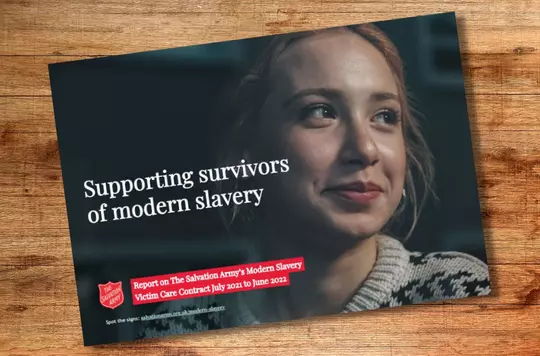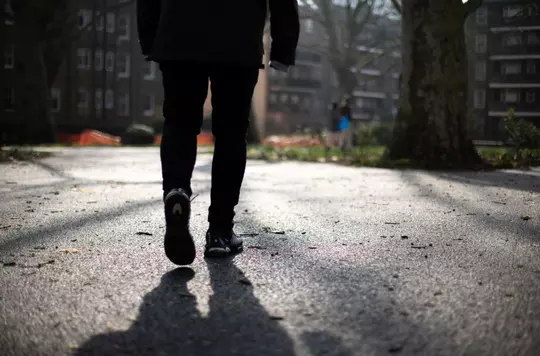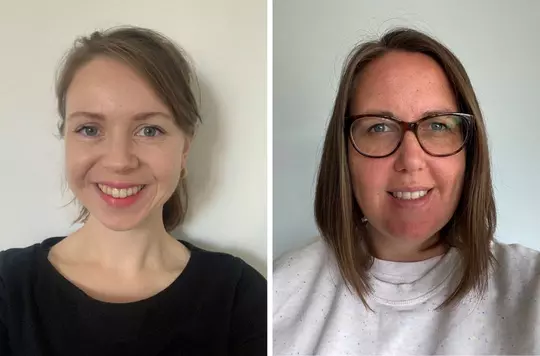7 December 2022
Anti-slavery student advocates: Turning a desire for justice into positive action
George Tanton interviews Jo Taylor

Jo Taylor tells George Tanton about how student advocates will help The Salvation Army’s fight against modern slavery.
‘When it comes to issues of social justice, young people have a clear sense of right and wrong’, explains Youth Specialist (Discipleship) Jo Taylor. Leading a new student advocate scheme to raise awareness among young people of modern slavery and human trafficking, she is passionate about involving them.
‘As the territorial youth specialist for discipleship, I have been pushing the subject of human trafficking for a long time,’ she says, ‘and have been involved with many Army initiatives to make young people more aware of the issue.’
Student advocates will be volunteers who discuss modern slavery and human trafficking in schools, colleges, youth groups and Christian unions at universities. They will respond to speaking requests and use their knowledge and resources provided by the Anti-Trafficking and Modern Slavery Unit (ATMS) to implement a grassroots movement. This in turn will raise the profile of the Army’s work supporting people who have been exploited.

‘At the moment we are recruiting advocates from everywhere, not just university students, but specifically people aged between 18 and 25 who are willing to be trained up, respond to speaking requests and generate their own opportunities for discussing the issues around modern slavery and human trafficking,’ Jo says.
‘Some people apply because they are involved with the Army and have been inspired by a spokesperson from ATMS. Others from outside the Army have been researching online for ways to help prevent human trafficking and have come across this opportunity.’
The advocates’ training will cover how to communicate with audiences effectively and relate real-life experiences ethically. They will use resources such as the True Story packs, which recount real experiences of human trafficking and modern slavery to different age groups.
‘We are passionate about standing with survivors,’ adds Jo, ‘so we want to tell these stories that represent their courage and the reality of their situation. We do not want to re-victimise them through our storytelling.’

Advocates will receive training in teaching others how to spot the signs of exploitation within their communities and identify individuals involved in trafficking.
‘The initial training will last two sessions,’ she explains. ‘Advocates will then become members of a forum in which we will continuously share information regarding best practice and resources related to the Army’s anti-trafficking campaigns. We have a schedule of additional training seminars that will help expand their knowledge.’
There are benefits and pitfalls of using social media to highlight modern slavery to younger audiences.
‘Young people have grown up in a world that is extremely connected to 24-hour news cycles and so they hear and see a lot that is going on in the world,’ says Jo. ‘They are now very aware of social injustice, civil rights and environmentalism. The Black Lives Matter movement, for example, was a huge catalyst in utilising social media for social change.
‘People of all ages are on Instagram, Facebook and TikTok, but there is very little cross-generational communication within these channels. As a middle-aged woman I can post something very informative on my social media channels about modern slavery or human trafficking but, because of algorithms and because of who my follower base is, my posts are only seen by my own peer group.’
‘We want to see more young people, such as these student advocates, using their channels to raise awareness of modern slavery and human trafficking,’ she adds. ‘There are still many people who do not understand how widespread it is.’
The revelations about Olympic athlete Sir Mo Farah highlighted the prevalence of human trafficking in modern society.
‘His story opened everyone’s eyes and has changed the general public’s perspective on what modern slavery actually looks like,’ says Jo. It is happening all around us and not just in the darkest places imaginable.’
Asked whether the war in Ukraine and the Afghan refugee crisis have exacerbated the issue of human trafficking, Jo adds: ‘Wherever there is conflict there is exploitation. When individuals or families are displaced, the very worst of people will prey on their vulnerability.’
‘It is really important to develop and campaign for processes that ensure victims of conflict are not re-victimised,’ she continues. ‘We need to ensure that refugees find safety and refuge, and that they can flourish. While The Salvation Army has done that by mobilising its volunteers and establishing first responder networks, the student advocate programme will capitalise on young people’s deep sense of justice. It will turn their frustration, anger and sadness at the current state of the world into a positive action.’
- To find out more about becoming a student advocate, contact Jo via childrenyouth@salvationarmy.org.uk.
Written by

George Tanton
Editorial Assistant
Discover more

As the annual report on the Army’s modern slavery response is released, Salvationists are encouraged to take a stand.

Ivan Radford explores the current challenges facing the Army’s Anti-Trafficking and Modern Slavery Unit.

Emily Bright finds out how mentors are helping modern slavery survivors to thrive.

The Salvation Army's International Positional Statement on Modern Slavery and Human Trafficking.